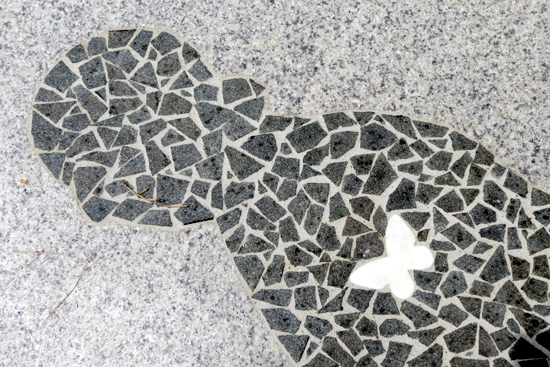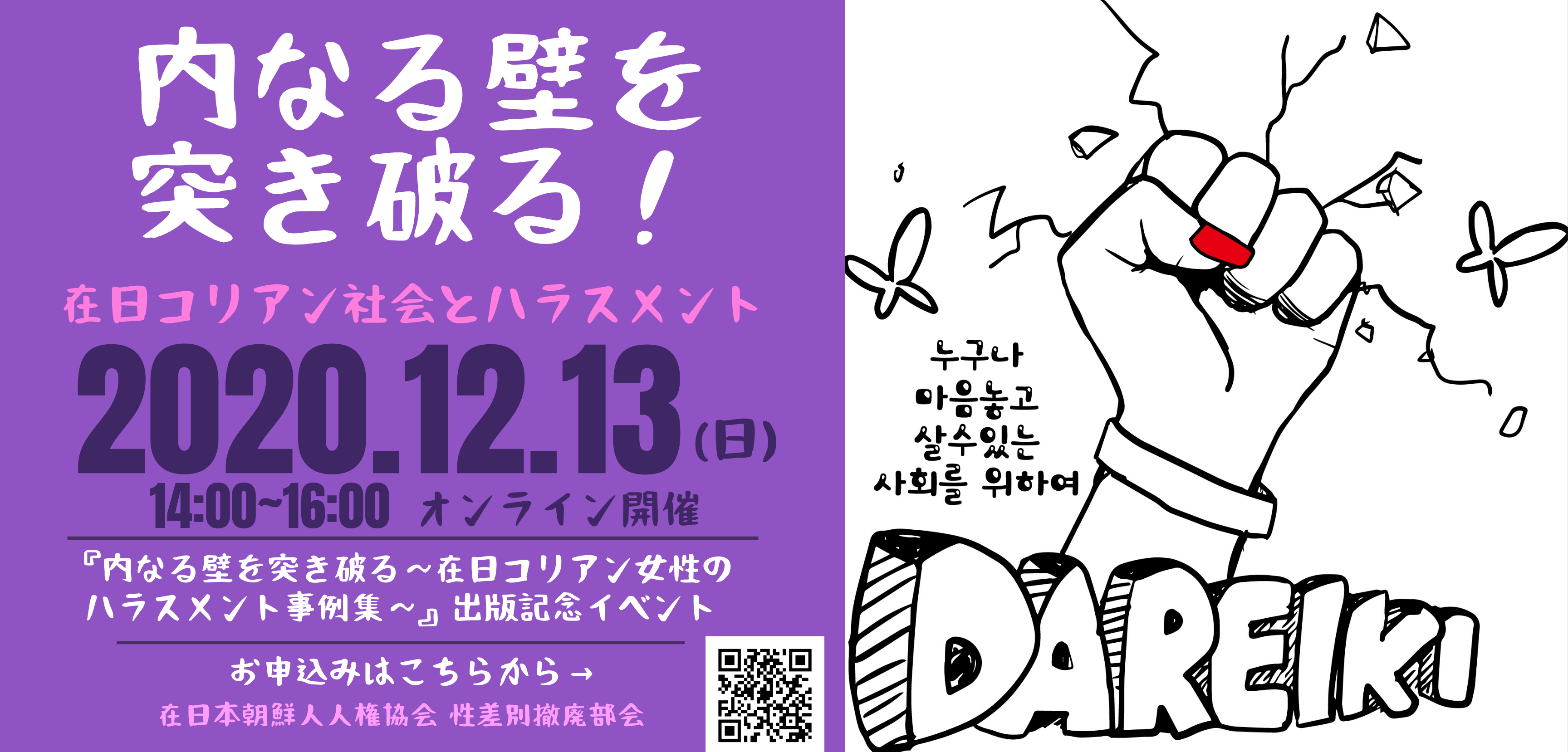Candlelight Vigil for Ms. Kim Bok-dong and Ms. Lee
~ Apology and Reparation from Japanese Government Now!!~
Friday, February 1, 2019
●Part I: 12-1pm in front of Prime Minister’s Office (5 min walk from Exit 1 of Kokkai Gijido-mae station & Exit 1 of Nagata-cho station)
●Part II: 6-7p in front of Diet Members’ No. 2 Office Building of the Lower House
(5 min walk from Exit 1 of Kokkai Gijido-mae station & Exit 1 of Nagata-cho station)
◆Mission Statement
On January 28, 2019, 2 survivors of Japan’s Military Sexual Slavery passed away in South Korea. They were Ms. Kim Bok-dong (born in 1926) and Ms. Lee (born in 1925). Ms. Kim was sexually enslaved from age 15 in Guangdong, Hong Kong, Malaysia, Indonesia, Bangkok and Singapore, and Ms. Lee from age 17 in Shimonoseki and Manchuria.
74 years have passed since Japan’s defeat, Japanese government not only fails to take legal responsibility for the wartime sexual slavery, but also tries to cover up the violent past by silencing the voices of the survivors as seen in the 2015 “Agreement” between South Korea and Japan.
However, prominent women’s rights activist and survivor, Ms. Kim Bok-dong stated “We cannot accept the 12.28 Agreement. The 10 billion yen that Japanese government would pay has no meaning to us. We hope that Japanese government will admit their legal responsibility and apologize publicly.” (January 28, 2016, Press Conference). Right before she passed away, she also left these words with her supporters:
“Please keep on fighting till the end to resolve Japan’s Military ‘Comfort Women’ issue. Please make sure that support for Korean school students continues until the end on my behalf.”
Faced with these survivors’ deaths, we are organizing the candlelight vigil so we can mourn their lives and continue to follow their paths collectively. We urge your participation and support.
◆Send us your message!
If you cannot participate in the vigil, you can share your message for the survivors and/or Japanese government by 5pm, Friday, February 1 by
1) Posting your message on our Facebook page: https://www.facebook.com/events/2343738975846261/ or
2) Emailing it to hurak.sccp@gmail.com. Please put “2/1 message” in a subject line.
**We will hide messages that are inappropriate for this campaign.
◆Please also participate in Friday Action to demand equal educational rights for Korean high school students!
□Friday, February 1, 4-5pm, Ministry of Education, Culture, Sports, Science and Technology.
Since 2010, Korean high school students continue to be excluded from the “Tuition Waiver Program” even after a number of recommendations to stop the discriminatory measures issued by the U.N. organizations. Angered by the blatant racism by Japanese government, Ms. Kim Bok-dong visited Korean schools on multiple occasions, awarded scholarship to the students and made donations to the schools.
Since May 2013, Korea University students have organized “Friday Action” and gathered in front of Ministry of Education every Friday, 4-5pm to demand that “Tuition Waiver Program” be applied to Korean high school students just like any other high school students in Japan. We hope you can join us this Friday!
[Organizer]
Department of Elimination of All Forms of Intersectional Discrimination
Human Rights Association for Korean Residents in Japan
3-41-10, 3rd floor, Taito Taito-ku Tokyo, 110-0016
Tel: 03-3837-2820 | Fax: 03-5818-5429 (Korean, Japanese and English)
E-mail: hurak.sccp@gmail.com
Website: http://hobohobo.sakura.ne.jp/dareiki-old/
◆The memoirs of Kim Bok-Dong
Grandmother Kim Bok-Dong was one of many teenage girls who were taken into the system of Japanese military sexual slavery. She was dragged onto the battlefield at the age of 14 and only managed to return home eight years later. She survived the war and became a symbol of the multitude of unnamed victims who did not make it.
Grandmother Kim was a peace and human rights activist who urged Japan to apologise sincerely and provide appropriate reparations. Her activism was not limited to the issue of Japanese military ‘comfort women’ but she also became a butterfly of peace, seeking ways to end the conflict related sexual violence that is still ongoing globally.
Grandmother Kim took to the streets every Wednesday to meet with students and everyday people to demand a world where everyone could live in peace. She encouraged the activists who worked in Japan and appealed to people from all corners of the globe to play their part in creating a world without war, in which there would no longer be any new victims of conflict related sexual violence. Proof of her persistence and determination are clear in the work she has done in Korea and internationally.
“I am also a victim of the Japanese military ‘comfort women’ system and that is partly why I come to the Japanese Embassy every Wednesday to demand the recovery of our dignity and human rights, but I am also very aware that there are women all around the world, who at this moment are facing the same suffering that we experienced. I want to support these women.”
“My wish is that our country too will be able to reconcile, to each take a step back, for the North and South to become unified to create a country without war and for our tragedy to never be repeated, so that your descendants will be able to live without fear.”
-At the Wednesday Demonstration 5 October 2015
In this way, Grandmother Kim’s activism heightened the international community’s awareness of the issue of Japanese military ‘comfort women’ and led efforts to prevent ongoing conflict related sexual violence. Survivors of sexual violence in current conflict zones such as the Democratic Republic of Congo and Uganda have said of Grandmother Kim, “You are our hero, our mama, our hope.” The activism which began with the survivors of Japanese military sexual slavery is expanding to encompass women all over the world who have survived conflict related sexual violence – becoming a stronger, unified voice. The solidarity of these survivors surpasses borders and is becoming a beacon of hope that will create a peaceful world and prevent the resurgence of conflict related sexual violence.
●1926, Born in Yangsan, Gyeongsangnam-do Province
●1940, Age 14 – taken by the Japanese military sexual slavery system and moved around occupied territories including China, Hong Kong, Malaysia, Indonesia, Singapore.
●1945, In Singapore – disguised as a nurse at a Japanese military hospital and made to do forced labour, left behind, taken as an American prisoner-of-war
●1947, Age 22 – returned home after eight years of enduring Japanese military sexual slavery
●March 1992, Came forward as a survivor and began activism
●August 1992, Gave testimony at the first Wednesday Demonstration for the resolution of the issue of Japanese military sexual slavery
●June 1993, Attended the Vienna World Conference on Human rights and gave testimony
●2000, Participated in the The Women’s International War Crimes Tribunal on Japan’s Military Sexual Slavery as a plaintiff, submitted a written testimony
●30 July 2010, Recipient of the Courageous Woman Award awarded by Glendale City Council in California, US
●March 2011, Proposed starting a fundraiser to support victims of the 2011 Japanese Earthquake, was the first to donate
●8 March 2012, Founded the Butterfly Fund to support women affected by conflict related sexual violence alongside the Korean Council for the Women Drafted for Military Sexual Slavery by Japan
●2012-2016, Campaigned at the UNHRC, in countries including America, England, Germany, Norway and Japan in order to promote the need for a world without war and for an end to victims of conflict based sexual violence
●30 July 2013, Attended the unveiling of the first international Statue of Peace in Glendale, California
●7 March 2014, Apologised and voiced support for Vietnamese victims of Korean military sexual violence through a video message
●May 2015, Named one of ‘100 peace activist heroes’ compiled by Reporters without Borders and AFP
●25 July 2015, Donated 65,300NZD to the Butterfly Fund to support children in conflict zones
●10 December 2015, Recipient of the 2015 Human Rights Award from the National Human Rights Commission of Korea
●6 July 2017, Awarded Kim Bok-Dong scholarships to two Joseon High School students
August 2017, Pledged to donate all remaining assets
●26 September 2017, Placed in the city of Seoul Hall of Fame
●23 November 2017, Donated 130,639NZD to victims of the Pohang Earthquakes
●25 November 2017, Donated 65,300NZD to the Korean Council to support survivors of conflict related sexual violence and to establish the Kim Bok Dong Peace Award for activists in this field (First recipient: Akan Silvia, survivor of sexual violence during the civil war in Uganda)
●10 December 2017, The Women’s Initiatives for Gender Justice select Grandmother Kim and the Korean Council to be featured on the Gender Justice Legacy Wall
●9 June 2018, Spoke at a meeting of the Seeds of Hope Fund Foundation and awarded Kim Bok-Dong scholarships to Joseun High School students in Tokyo, Japan
●22 November 2018, Donated 65,300NZD to establish ‘Kim Bok-Dong’s Hope’ to continue support for the Joseon High School
●10 December 2018, Became honorary president of ‘Kim Bok-Dong’s Hope’
●2 January 2019, Recipient of the Righteous Person Prize, donated 65,30NZD reward to ‘Kim Bok-Dong’s Hope’
◆The Memoir of Ms. Lee
Halmoni (Grandma) Lee was born in 1925. When she turned 17, around 1942, she and her two co-workers were abducted by a Japanese soldier on their way back from a spinning mill factory. Several other Korean women were already there when they were put in the military truck. They were joined by more, and a group of 15-16 women were forcibly put in a ship and brought to Shimonoseki. They were later moved again to Manchuria where they continued to be raped.
One day, Ms. Lee and others noticed that suddenly no solider was coming and then realized Korea had been liberated. They had no money, and no one told them how to return to Korea. As they struggled to find a way to go home, Ms. Lee and another woman managed to get on a smuggler after explaining the Korean captain what had happened to them.
Halmoni Lee suffered from sense of guilt and victimization until she died.
For a long time, she always looked wretched, unable to escape from the pain. Every time supporters visited her and saw her face filled with pain and sorrow, their hearts ached. Nevertheless, Halmoni Lee was happy to see the supporters and would call them to make sure they got home safely.
From the end of 2018, Halmoni Lee became sick, and her health condition worsened recently. After suffering from enormous pain, she passed away this morning. May she rest in peace, free from all of the painful, sad memories.



